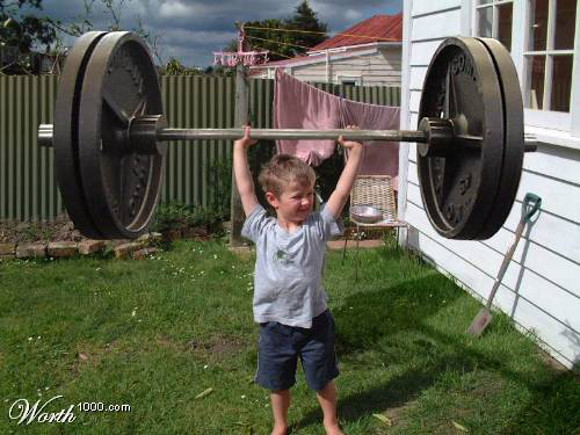In Part One of this post, we presented the first two most common mistakes that novice weight trainers make. Weight training is an important part of anyone’s fitness regime. It is very important, though, that good habits be established from the very beginning to prevent injuries.
3. Too Few Sets.
To make progress in weight training the muscles have to work. One set per exercise is not sufficient. A minimum of three sets per exercise is preferred to give the muscles enough work. It is typically best to start with one or two light warm-up sets per body part. These do not count toward the “work” sets. The three work sets should have the person trying to get eight to ten repetitions.
Another good rule to go by is to do a minimum of two to three exercises per body part. For example, a good chest workout might be three sets of flat bench presses, three sets of incline bench presses, and three sets of machine flyes. There are many different combinations that can be done. Checking with a personal trainer or even looking on-line at some different work out routines is recommended.
4. Overworking Muscle Groups.
Muscles need time to recover between workouts. A common mistake that people make is working certain muscle groups too often. Body parts should not be worked out any more than twice a week and never on successive days. A “rookie” mistake for weight training is to work the same body parts every time they go to the gym. It is very important to work each muscle group, not just the “showy” ones. Some people find that their legs only need to be worked out with weights once a week for optimal growth. Once a week is fine as long as you are consistent with it.
5. Not Using a Spotter.
The last common mistake in weight training that will be mentioned is that of not having a spotter when lifting heavier weights. Spotters are not needed for every exercise. They are only needed when the person is lifting a heavy weight and might need some help. Having someone spot them is an important safety factor. A spotter will be able to help the person if the weight gets stuck. Having a spotter also provides a psychological boost to try and lift a weight that is heavier than normal.
Most people in a gym are happy to assist with spotting someone. If a person is working out at home with weights, they should use the utmost caution so as not to put themselves in a position where they will need a spotter. Weight training, if done correctly, will help a person in their quest to stay healthy. Avoiding these common mistakes will protect them from injury. Learning to how to work out correctly is essential if someone is going to do strength training.
Can you think of any other mistakes that strength trainers can make?
Would you consider partnering with Annie and I as we serve in Brazil? Just click here to join our team. Obrigado! (Thank you!)

